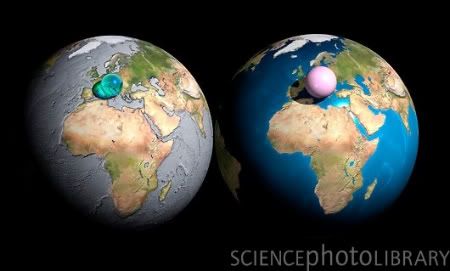Political Philosophy and Sustainability


Let’s start with the notion that we should love our neighbors as ourselves, and that we should treat other people as we ourselves like to be treated — both concepts that have come through the millennia essentially untarnished. Yet while I don’t object to these as moral goals, I point out that they are wildly out of kilter with the actual day-to-day behavior of the vast majority of people – not to mention the institutions on this planet.
We live in a competitive society. There is only so much ocean-front real estate, only so much enrollment in good colleges for our kids, and so forth — and we compete vigorously for these items. If I succeed in wrangling one for myself, one fewer is available for everybody else. Perhaps more to the point, only a small percentage of people go to any real lengths to help those less fortunate. We keep our distance from the social underclass — and generally regard them with a mixture of pity and contempt.
At an institutional level the situation is even more obvious and severe. Anyone who successfully made sense of the recent healthcare debate came to learn the shameful truth: We treat the sick only when it is profitable to do so. And businesses generally do not prosper by doing good for people; in fact, it’s quite clear that we’d all be better off without many of our most prosperous industries. Most of the food we sell to one another is full of chemicals, sugar, and fat; most of the pop songs and movies that we target to children teach moral degradation; and most of the energy we generate comes from sources that are choking the planet to death. The Golden Rule may be a terrific moral goal to which to aspire, but we need to face the fact that it’s more or less irrelevant to our way of life.
I recently became aware of the picture above – Adam Nieman’s incredible 2003 work, aimed at getting us to appreciate the environmental challenges we face. It depicts the actual size of the Earth’s oceans (the small blue sphere on the left) and atmosphere (if it were at sea-level air pressure, the small white sphere on the right).
If I were in charge of educating our young people, I would build a long and deep discussion of this one picture as the centerpiece of my new curriculum. And part of that conversation would be the notion of our responsibilities to others – today and tomorrow.
For instance, what does it mean to own something? What rights — and responsibilities — do you have as an owner? I suppose it depends on the nature of the thing you’re talking about. You own your personal items – your shoes and cell phones — and they come with a limited set of responsibilities. And in some sense, you may own the home you live in (though in most of the world’s nations there are responsibilites that come with your rights as a property owner).
But who owns those precious little blue and white marbles? What are our collective responsibilities that come along with co-ownership? What changes do we need to make in the way we conceive our duties to those living here today — and to those who will follow?
A conversation worthy of your dinner table, I would submit.

